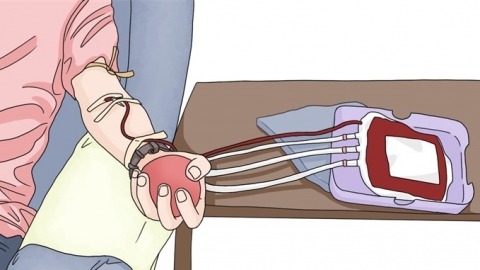How long after taking cold medicine can I donate blood?
Generally, individuals should not donate blood shortly after having a cold or taking medication. It is recommended to wait 1-2 weeks after cold symptoms have completely subsided and medication has been discontinued. The exact interval should be determined based on the recovery status and the metabolic characteristics of any medications taken. Detailed explanation is as follows:

During a cold, the body may be in a state of viral infection or inflammation, with possible presence of pathogens or abnormal immune factors in the blood. Donating blood at this time might affect blood quality, and the body's immunity is generally weakened, so donating blood could worsen discomfort. If cold medications have been taken, such as those containing paracetamol, pseudoephedrine, antihistamines, etc., it is necessary to wait until the drugs have been completely metabolized and eliminated before donating blood.
Common fever-reducing and pain-relieving medications, such as paracetamol, are typically mostly metabolized within 1-2 days. However, medications containing pseudoephedrine may take longer to metabolize, approximately 3-5 days. In summary, it is recommended to wait 1-2 weeks after all cold symptoms (such as coughing, runny nose, fever, etc.) have disappeared and after discontinuation of medication before donating blood. By this time, the body should have recovered and the medication should have been fully metabolized, ensuring both blood quality and the donor's health.
Prior to donating blood, individuals should truthfully disclose their health status and medication history, follow the professional evaluation of the blood donation organization, and avoid compromising blood safety due to incomplete recovery or residual medication effects.










